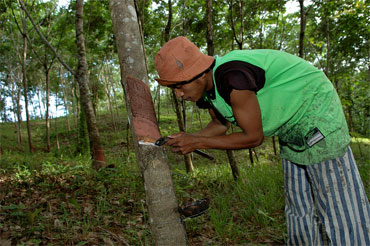The National Verification (NV) offices in Chiang Mai and Myawaddy announced on December 18—International Migrants Day—that they will extend their deadline for migrants to register until the end of the year; however other NV centers—including those in Mahachai and Ranong—did not, leaving hundreds of thousands of undocumented migrants from Burma, Cambodia and Laos facing arrest and deportation.

It was hoped by labor rights groups that the previous deadline—December 14—would be extended for a longer period following a petition by Thai businesses last week.
However, Thailand’s Labour Minister Padermchai Sasomsap said on Friday that the deadline had been extended six times to allow migrant workers and employers to get the proper documentation.
“The deadline was extended several times and they were given months to carry out the process each time. The result has been an influx of migrant workers, which has hampered efforts to better protect their rights and their welfare benefits,” Padermchai told The Bangkok Post.
In a report titled “RegularRights” released on December 18 by the MAP Foundation, the Chiang Mai-based migrant rights group questioned whether registration for beneficial for migrant workers.
A minority of Burma’s estimated 2 million migrant workers in Thailand have registered at NV centers, which are mostly located at towns on the Thai-Burmese border. Those who have gone through the entire process and received temporary passports to work legally in Thailand tended to say that although their wages were higher and they felt safer from intimidation by Thai police, the entire process was not financially attractive as they had to spend too much time and money traveling to apply for paperwork. Others claimed that conditions were no better for legal workers.
The report said that undocumented workers receive an average wage of 115 baht (US $3.83.) per day, while those with migrant workers cards were paid 156 baht ($5.20) a day. Those migrants fully documented with temporary passports worked for an average of 224 baht ($7.50) per day.
However, safety conditions were not improved with legal documents, the report said, and some 20 percent of legal migrant workers complained they had suffered at least one accident at work in the past three years.
Common accidents for the mostly agricultural, construction and factory-based workforce included electrical shocks, injuries from heavy equipment, falling from heights, needle injuries, respiratory problems from pesticides and dust, and fatigue from working long hours in the hot sun.
Fifty percent of migrant workers who have gone through all the trouble of paying to get documentation to work in Thailand nevertheless did not receive a salary even close to the Thai minimum wage, the report said.
Education for their children would appear to be the one overriding factor why Burmese and other migrants would choose to get temporary passports.
“While only 8.5 percent of the children of undocumented respondents were attending Thai school, 67 percent of children of parents holding temporary passports were attending Thai schools,” the report said.


